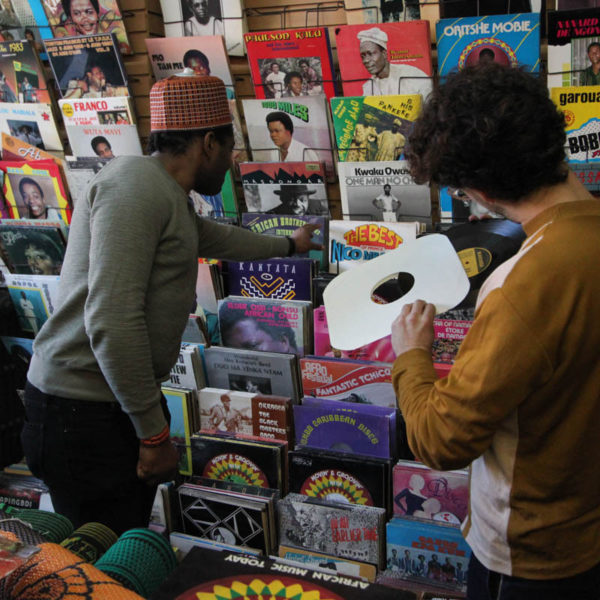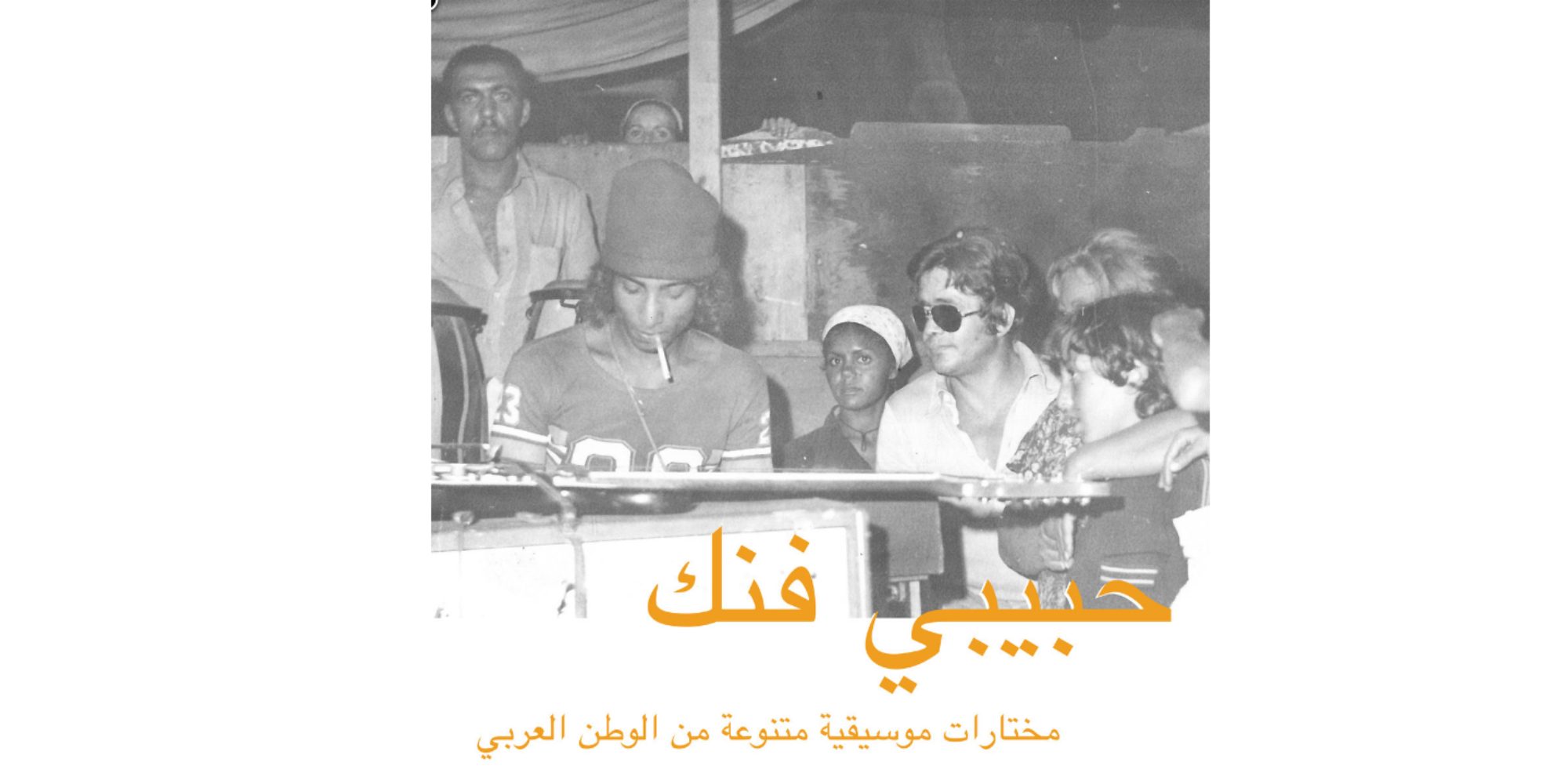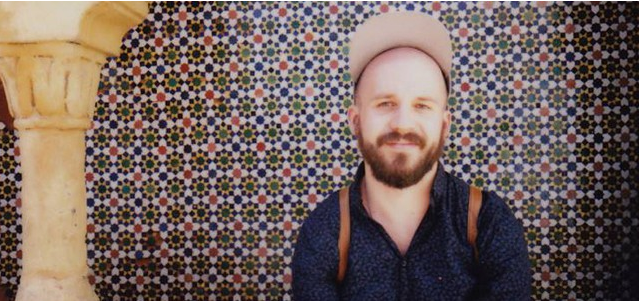African music aficionados, and devotees of the Global Soundclash more broadly, have never had it this good. From the U.K.’s Soundway Records to Sofrito, Analog Africa to Heavenly Sweetness, a host of bespoke record labels have proliferated in recent years, providing reissues previously unknown to the average listener and typically out of price range to even the most discriminating DJs and record collectors. Jannis Stuertz and the good people at Berlin-based Habibi Funk Records have recently added to the embarrassment of riches with their first multi-artist compilation, simply titled Habibi Funk 7.
As is the case with many of the current crop of reissues, the music of the '70s and '80s proves to be a rich, seemingly bottomless, quarry to mine. This period is Habibi Funk’s exclusive stock in trade as a label, focusing on North African output from that era. Unlike many labels, however, Stuertz’s interest lies in what some would consider the fringes of the North African musical tradition, artists who bucked convention and embraced a wave of cross pollination occurring the world over. The result is a provocative collection which forces the listener to rethink expectations of Arabic music and, indeed, the very notion of "authenticity."
The period Stuertz chronicles marks a time in which Arab culture was more extensive, relatively speaking. War-weary and disillusioned with notions of Arab nationalism and tradition, artists looked to the wider world for inspiration. Stuertz’s compilation invites us to take a step back to an era before Auto-Tune devoured the entire world; a time before Saudi recording behemoths dominated (and diluted the quality of) pop music production; to a time when James Brown’s infectious funk breaks were taking hold across Africa; when Bob Marley had a profound influence on young Moroccan singers, and even good ol’ laid back Album-Oriented Rock (AOR) attracted a few musical heads in the region. Above all else, Habibi Funk 7 provides a snapshot of the Arab world before a wave of cultural rigidity set in, a by-product of the inrush of petro-dollars and an accompanying conservative interpretation of Islam.
This era was truly an amazing time for the music: the Egyptian King of Pop, Muhammad Mounir, melded his Nubian-based singing with the crack jazz-funk stylings of drummer Yahya Khalil and his band. To the west, Moroccan and Algerian shabaab were migrating to Paris and crossing paths with musicians from Guadeloupe, Martinique and even Cape Verde. Further east, Ziad Rahbani, son of Arab music’s Grand Dame of chanson, Fayruz, was simultaneously feeling the funk and composing groundbreaking, lush cinematic music. Habibi Funk 7 captures this open-minded spirit in spades. And it’s this spirit, not a desire to provide a comprehensive survey of the trends of the time, that concerns the label. The single unifying theme to this collection, if one can be found at all, is that each of these songs stand proudly outside of the traditional canon of '70s and '80s Arabic music.
From beginning to end, the compilation confounds the listener’s sensibilities. The opening cut, Fadoul’s "Bssalama Habibi," is straight-up rhythm and blues/early rock 'n’ roll a la Little Richard’s "Good Golly, Miss Molly," and Fadoul’s raspy wail and his backing band carry that same searing energy as he sings "Bye, baby" in Moroccan darija. The rock 'n’ soul vibe permeates much of the first of this two-record set: guitars in overdrive and a swinging saxophone line let you know Sudanese jazzman Sharhabeel Ahmed has been smitten by the rock 'n’ roll bug. Several covers are included in this first record, each done with distinctive energy: Moroccan singer Jalil Bennis and the Golden Hands offer up a tremendous rendition of Nino Ferrer’s Mirza from the mid-'60s, with Bennis’ understated vocals an incredible contrast to the drive of the r&b backing. Another Moroccan singer, Belbao, does a remarkably faithful cover of Vigon’s "‘Harlem Shuffle,"’ complete with a soul revue horn section--an element this reviewer has never heard on an Arabic record previously. Most curious in this segment of the record is a mystery track, previously unreleased by Casablanca’s Attarazat Addahabia, whose melody appears to be inspired by Beethoven’s "Fur Elise"--now morphed into an Ethio-funk number with an exuberant female backing. You were warned, dear reader, that this collection defies expectation--the results on this track are less bizarre (and more satisfying) than they sound in print.
Halfway through the record, our compiler has gotten the rock 'n’ roll out of his system. Two tropical numbers punctuate the transition: the first, a zouk-inspired piece, the second owing its swing to the coladera music of Cape Verde. We then shift gears again--Ethio-funk has an undiscovered cousin in the form of Sudan’s Kamal Keila. The next portion of the compilation takes us in the direction of the cinema and America of the '70s. Highlights include the shimmery, sparkling "Ayonha," from the originator of Egypt’s '80s geel sound, an AOR track sung in English from Lebanon’s Samir and Abboud entitled “Games”, which would sit nicely among Boz Scagg’s output of the period; and finally, the glorious "Soul Brother," a beautiful nugget of inspired Fender Rhodes and Latin horns-tinged soul from the Tunisian artists Dalton, showing us that groups like Mandrill and Malo weren’t limited to America.
This last point is critical to understanding how to take in such an eclectic mix of music--cultural appropriation is a worldwide phenomenon, not the exclusive domain of the so-called developed world, and it is fascinating to see how the musical conversation proceeds from country to country. In its quirkiness and focus on the exceptions to the rules, Habibi Funk 7 provides both food for thought and the groove. The label has many releases in the works--long may they continue to defy expectation.
Related Audio Programs













